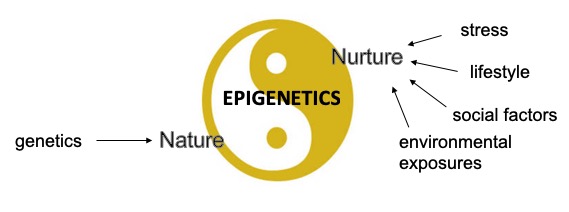Research suggests that only 5-10% of cancers are hereditary. Lifestyle choices we make, like the foods we eat and our physical activity levels, have a direct impact on our overall cancer risk. In addition to known modifiable risk factors like smoking, alcohol consumption, and obesity, researchers are still trying to understand how other factors, like dietary, environmental exposures, stress, and social factors, might also affect our risk.
The Park Lab examines relationships between lifestyle and environmental exposures and disease risk as well as their interactions with genetics and epigenetics. Epigenetics, the study of DNA modifications that can result in changes in gene expression or phenotype but do not involve changes in the underlying DNA sequence, lies at the intersection between nature and nurture, integrating the impact of the DNA with which we are born with the influence of our lifestyle and environment.
We also work on identifying biomarkers for lifestyle and environmental exposures and disease status. We believe that the more we know about individuals, the better we can predict their disease risk and prognosis, leading to tailored strategies for disease prevention, screening, treatment, and survival.
